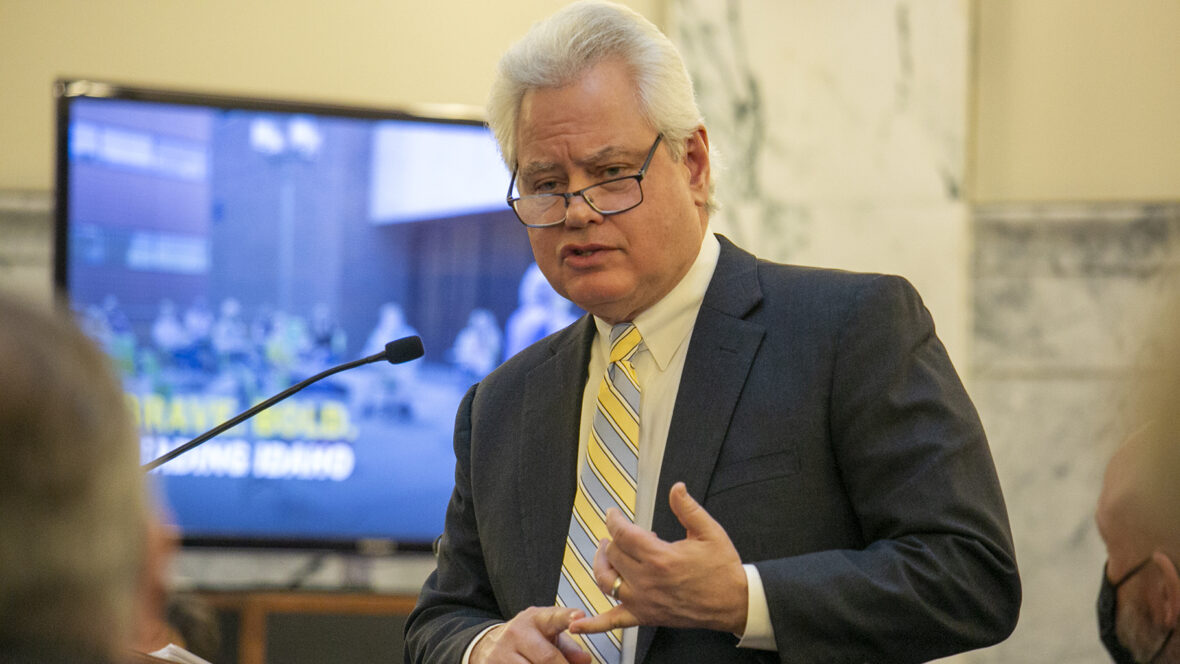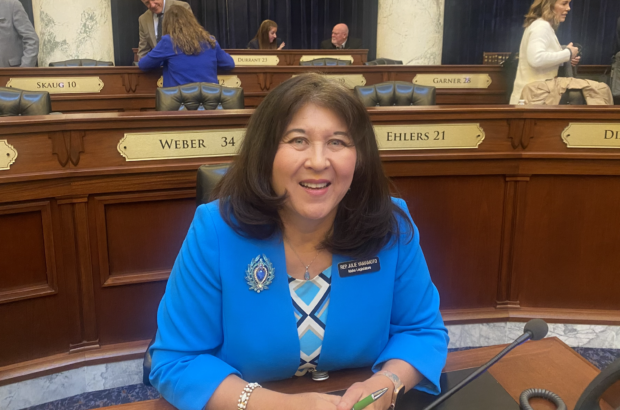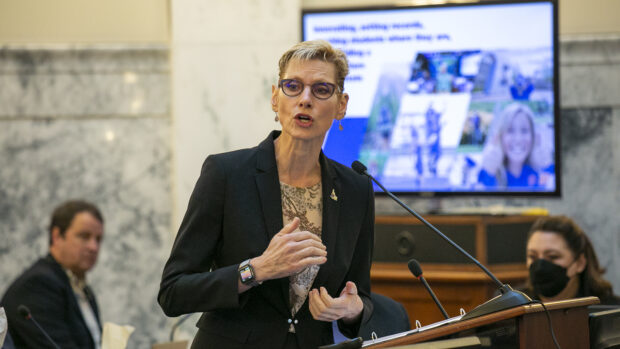
Rep. Julie Yamamoto had a heads up about the University of Idaho’s hush-hush, $550 million plan to purchase the University of Phoenix.
Sort of.
The House Education Committee chairwoman and Senate Education Committee Chairman Dave Lent got a briefing on the morning of May 17, hours before the U of I went public with the news. During the briefing, no one mentioned the University of Phoenix by name, in accordance with a non-disclosure agreement signed at the for-profit university’s behest. It didn’t take long to figure out that the unidentified partner was the University of Phoenix, said Yamamoto, R-Caldwell, “(but) they never confirmed nor denied.”

For the past week, Yamamoto and pretty much everybody else in Idaho education and political circles have scrambled for clues into, and answers about, the U of I’s abrupt and blockbuster plan to acquire a troubled online higher ed leviathan. Many of the answers, and much of the hard sell, have come from the State Board of Education and U of I President C. Scott Green. The U of I stands to gain or lose millions of dollars from the Phoenix purchase, and for better or worse, Green’s tenure at his alma mater will be measured against this balance sheet.
Once the news broke, the narrative unfolded rapidly. One day after the U of I’s announcement, the State Board of Education voted unanimously to give the Phoenix purchase the green light. The idea was to stay on a tight timeframe; in order to get Phoenix’s accrediting body to consider the purchase at its November meeting, the parties had to have the State Board’s go-ahead in hand by the accreditors’ Friday deadline.
As the high-risk proposal moves at high speed, national higher ed publications have been unbridled in their skepticism. The headlines sum it up. “The U of Idaho Moved Fast to Acquire the U. of Phoenix. Now what?” said the Chronicle for Higher Education. “Is University of Idaho’s acquisition of University of Phoenix a good idea?” said Higher Ed Dive.
Closer to home, criticism has crossed the ideological divide.
“Moving this quickly from idea to action … is bad government,” the Idaho Statesman said in a Sunday editorial.
The Idaho Freedom Foundation — which holds Green and what it calls Idaho’s “legacy media” in roughly the same disdain — challenged the underpinning of the deal. The Freedom Foundation argues that the Constitution forbids an outside entity to using the credit of the state; the U of I proposes creating a nonprofit, NewU, that would use $685 million in bonds to bankroll the purchase.
So if you had “Statesman editorial board and Freedom Foundation agree” on your 2023 bingo card, congratulations.
Other highly placed Idahoans are withholding judgment, because they had even less of a heads up than Yamamoto.

Boise State University President Marlene Tromp said she knew “absolutely nothing” about the purchase until the U of I went public. Tromp said she missed a briefing with Green last week because she was flying to the G7 economic summit in Hiroshima, Japan, where Boise State co-signed an agreement with 10 other universities in the U.S. and Japan, designed to improve semiconductor higher education programs.
Rep. Wendy Horman, co-chair of the Legislature’s budget-writing Joint Finance-Appropriations Committee, learned of the plan only when the U of I announced it. Horman, R-Idaho Falls, summed up her reaction succinctly: “shock.” While she appreciates that state leaders sound like they’re getting serious about changing higher education’s business model, she also says the Phoenix purchase seems to be structured “to avoid legislative involvement.”
The State Board has set up a June 1 Zoom meeting to allow legislators to ask Green questions about the purchase.
“There are a plethora of questions to be asked,” said Yamamoto. For her part, she said she asked last week about how the Phoenix purchase would affect Idaho’s community colleges. She said she got no answer, because the NDA prevented the U of I from talking to community college administrators.
With many questions unanswered, the State Board has found itself in an awkward dual role of due diligence and cheerleading. As the U of I’s Board of Regents, the State Board is charged with providing “general oversight” to the state’s land-grant institution. And after discussing the acquisition in three closed-door executive sessions — in March, April and May — the board’s eight members might well know more about the intricacies of the proposal than anyone beyond Green’s inner circle.
Before last week’s vote, State Board member Kurt Liebich touted the purchase as a “huge home run.” (The Boise-based building supplies industry CEO elaborated on his business case in a guest opinion that made the rounds after Thursday’s vote.) State Board member William Gilbert — the co-founder of Caprock, an office investment firm — said the board and the U of I had done its requisite number-crunching. “There was a robust process that the university went through, their advisers went through.”
The outcome of the Phoenix purchase could be a defining moment for the State Board. But none of the State Board’s gubernatorial appointees have Green’s public profile. This transaction will make or break Green’s legacy.
Over four years, the Idaho native and U of I alum has amassed some goodwill simply by providing the university much-needed stability at the top. He has leaned into the inherent politics of his job. He also has adroitly managed a series of crises beyond his control: an inherited, $22 million deficit; the COVID-19 pandemic and a resulting enrollment decline; the grief and fear that gripped the campus after the November slayings of four U of I students.
By choosing to pursue the Phoenix purchase, Green is choosing the path his narrative will take.
For now, he is getting some benefit of the doubt.
“(There is) a lot of trust and respect for what he’s already done and what I believe he can do here,” state superintendent and State Board member Debbie Critchfield said during a City Club of Boise forum Monday.
After working closely with Green during their four years in Idaho higher education, Tromp wants to hear what he has in mind. “He must have studied the case quite closely; he’s a smart person and a smart leader. But I don’t really know what his vision is yet.”
Yamamoto gives Green credit for taking to heart the Legislature’s challenge: to find new approaches to higher ed.
“He is taking a calculated risk that he obviously believes is going to work,” she said. “He is not fainthearted. I’ll give him that.”
Kevin Richert writes a weekly analysis on education policy and education politics. Look for his stories each Thursday.
Idaho Education News has submitted a list of written questions to the University of Idaho about the University of Phoenix purchase. We will publish answers when we receive them.
